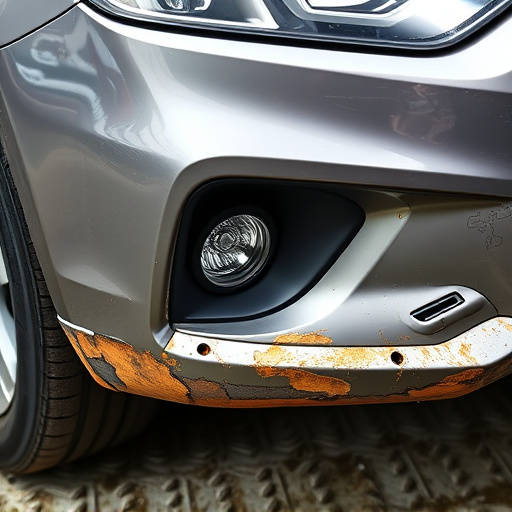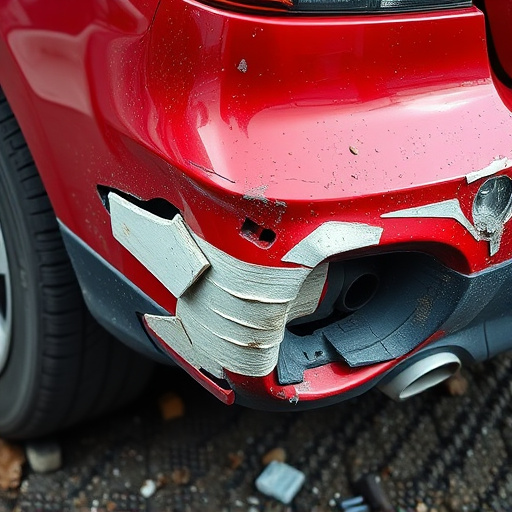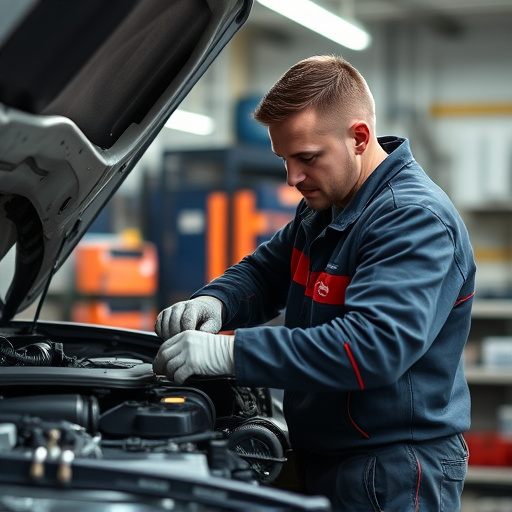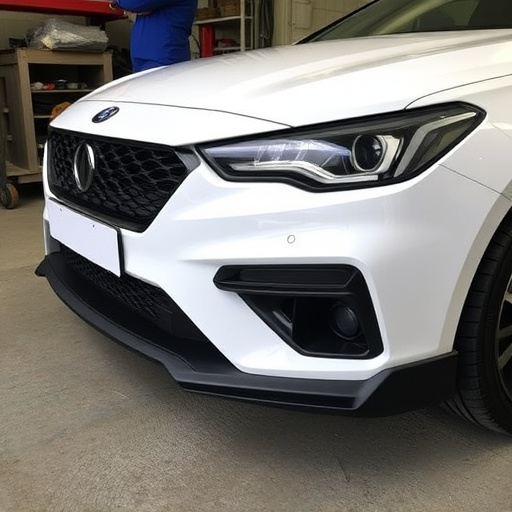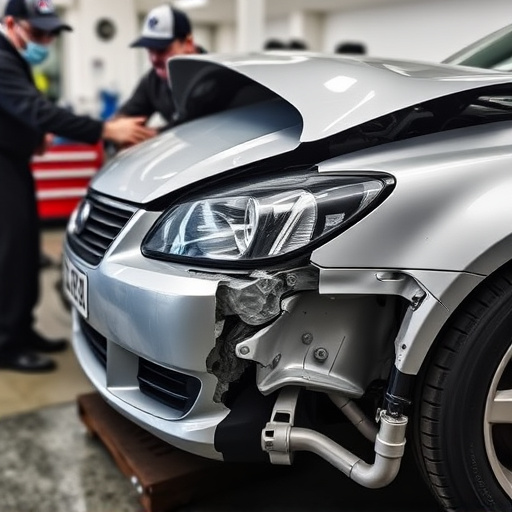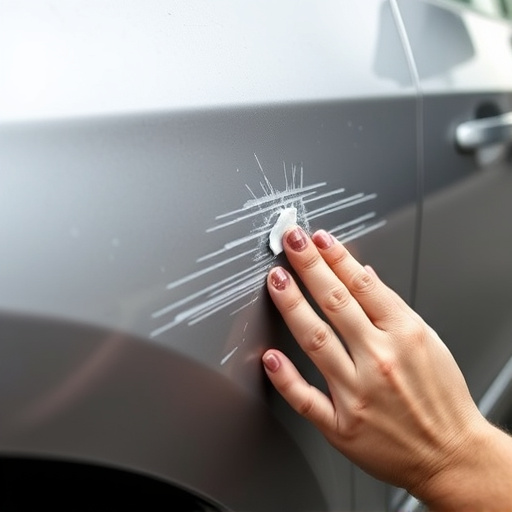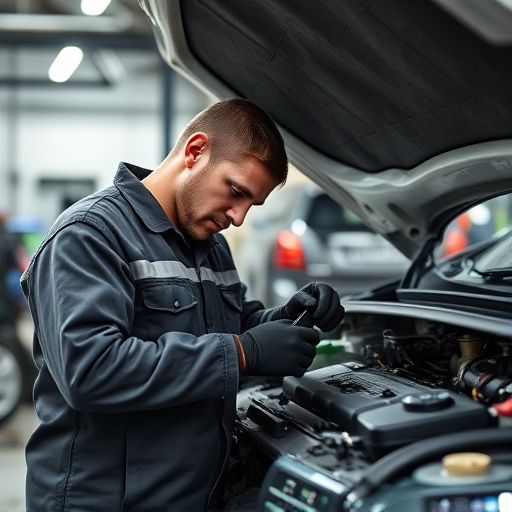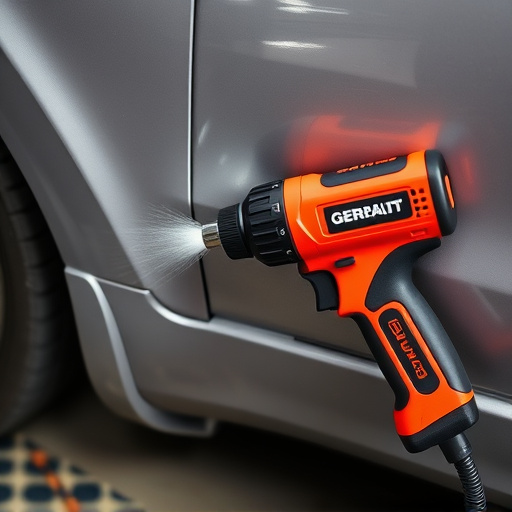Radiator support replacement (RSR) is a critical skill for automotive technicians, ensuring vehicle cooling systems and structural integrity. It requires deep knowledge of radiator types, coolant systems, thermal management, diagnostic skills, safety proficiency, and industry standards. Practical training with specialized tools and digital learning enhance RSR capabilities, enabling technicians to provide efficient repairs, prolong vehicle lifespans, and deliver high-quality automotive care.
In today’s automotive landscape, skilled radiator support replacement technicians are essential. This comprehensive guide delves into the core training requirements needed to excel in this specialized field. From understanding fundamental radiator support replacement principles to acquiring critical skills and knowledge, we explore what makes a technician proficient. Additionally, we uncover effective practical training methods and tools required to master this crucial aspect of automotive maintenance and repair, ensuring readiness for real-world challenges.
- Understanding Radiator Support Replacement Fundamentals
- Essential Skills and Knowledge for Technicians
- Practical Training Methods and Tools Required
Understanding Radiator Support Replacement Fundamentals
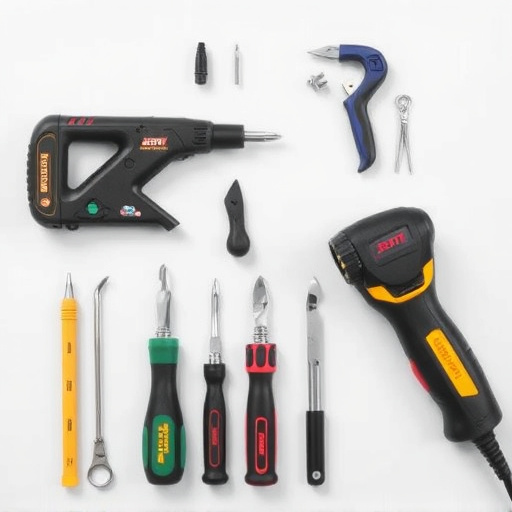
Understanding the fundamentals of radiator support replacement is paramount for aspiring technicians. This crucial process involves seamlessly integrating a new radiator support structure into a vehicle’s framework, ensuring optimal cooling performance while maintaining structural integrity. A deep grasp of this procedure is essential, as it demands precise alignment and robust fastening techniques to prevent future leaks or damage.
Skilled technicians must be adept at diagnosing issues with the existing support, utilizing advanced tools for accurate measurement and cut-offs, and possessing knowledge of various frame straightening techniques. Moreover, they should be well-versed in matching replacement parts precisely to the vehicle’s make and model, as this directly impacts both the car repair shop’s efficiency and the longevity of the repair, offering top-notch automotive repair services.
Essential Skills and Knowledge for Technicians
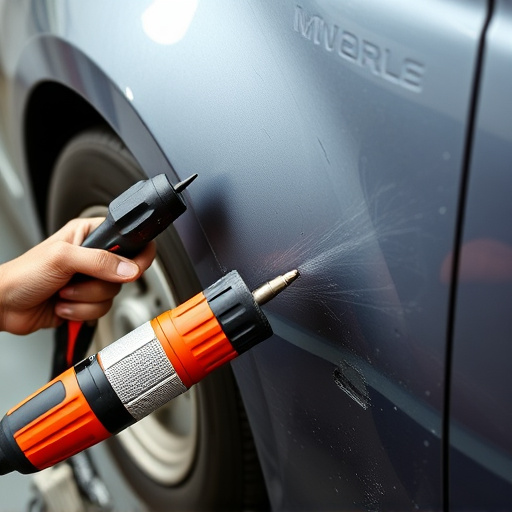
In the realm of automotive maintenance, skilled radiator support replacement technicians play a vital role in ensuring smooth and efficient vehicle performance. To excel in this field, these professionals must possess a unique blend of essential skills and knowledge. At its core, proficiency in radiator support replacement involves a deep understanding of automotive systems, specifically the intricate workings of radiators and their associated components. This includes recognizing various radiator types, understanding coolant circulation, and comprehending the importance of thermal management in vehicles.
Furthermore, successful technicians should be adept at diagnosing issues related to overheating, leaks, and corrosion. They must also be well-versed in safety protocols, as working with hot fluids and intricate machinery demands caution. Beyond technical prowess, effective communication skills are invaluable for explaining complex repair processes to clients, fostering trust, and providing insightful collision repair and body shop services. Moreover, the ability to stay updated with evolving industry standards and technologies ensures that technicians deliver top-notch dent removal and restoration solutions.
Practical Training Methods and Tools Required
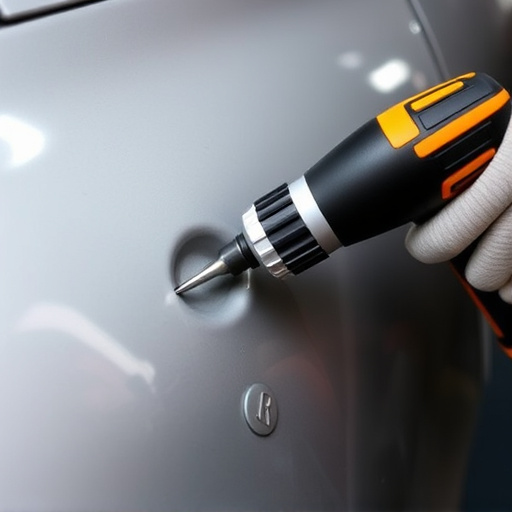
Practical training is paramount when equipping technicians for radiator support replacement tasks. Hands-on experience with a variety of tools and equipment is essential, including specialized torches, welding machines, and impact wrenches designed for precision disassembly and reassembly. Simulated collision scenarios, using high-fidelity dummies and damaged components, offer realistic training environments that mimic the challenges faced in a collision repair shop. These practical methods ensure technicians are prepared to handle real-world repairs efficiently and accurately.
Additionally, digital training tools and software play a crucial role in enhancing learning outcomes. Interactive 3D models allow technicians to virtually explore and understand complex vehicle structures, facilitating faster problem-solving during actual radiator support replacement jobs. Online tutorials and video demonstrations also provide valuable guidance on best practices for scratch repair and other car repair services, enabling continuous skill development beyond traditional classroom settings.
Training is key to mastering the complex art of radiator support replacement. By understanding fundamental concepts, acquiring essential skills, and engaging in practical training with specialized tools, technicians can become experts in this vital automotive maintenance task. Embracing comprehensive training ensures high-quality work, enhances safety, and contributes to a robust workforce capable of handling modern vehicle repairs efficiently. With the right education, radiator support replacement technicians can confidently navigate the ever-evolving landscape of automotive technology.

